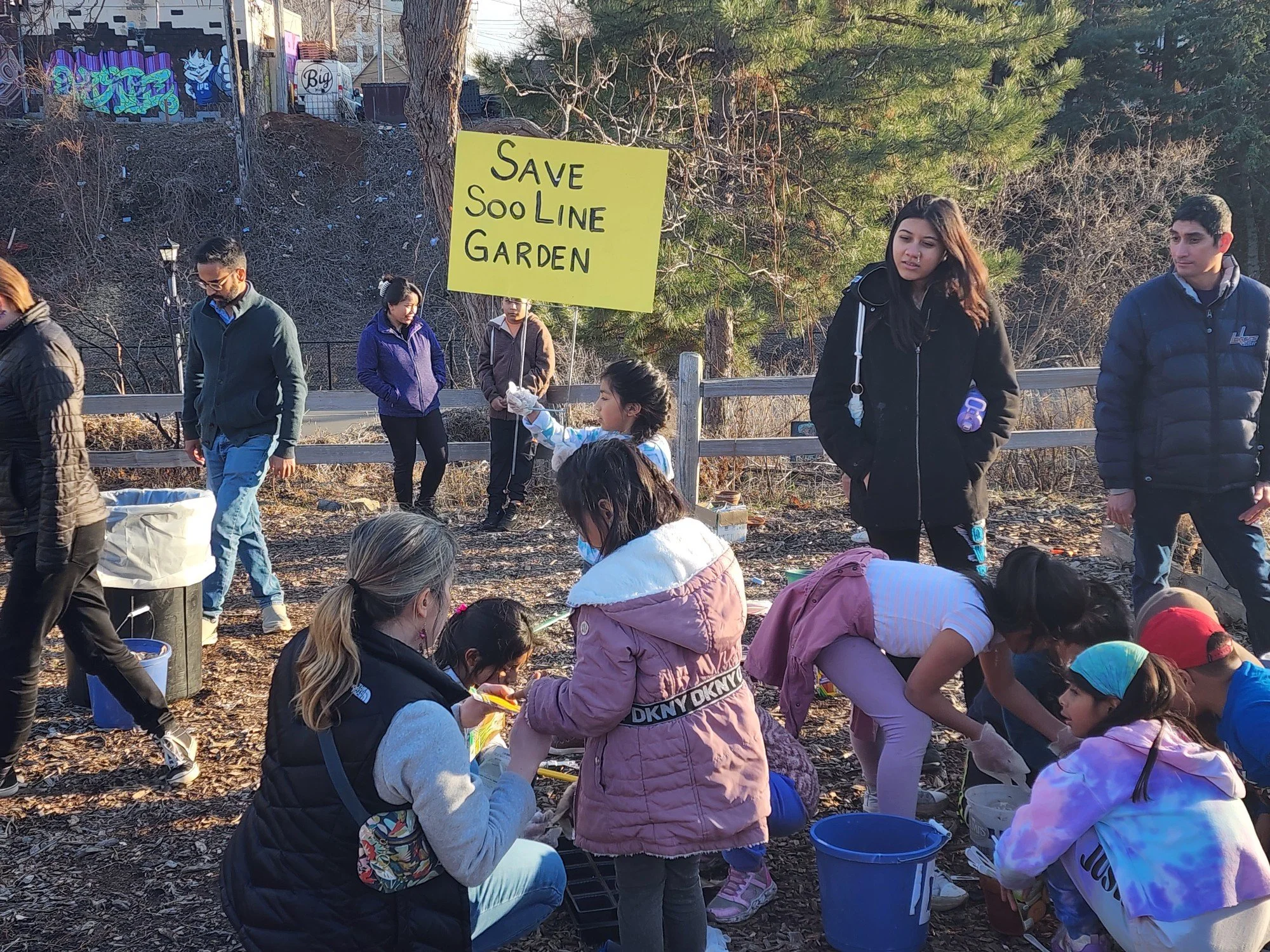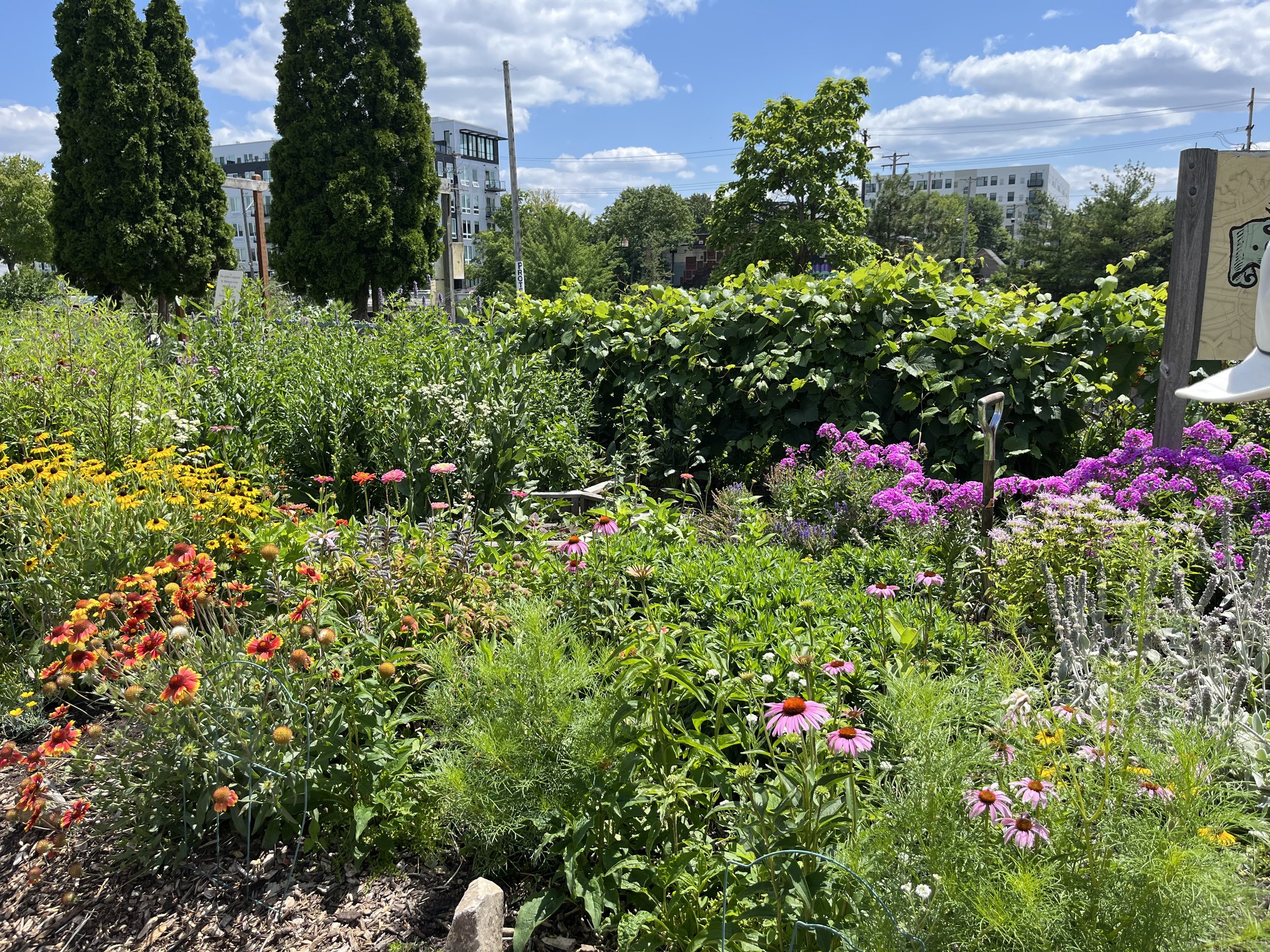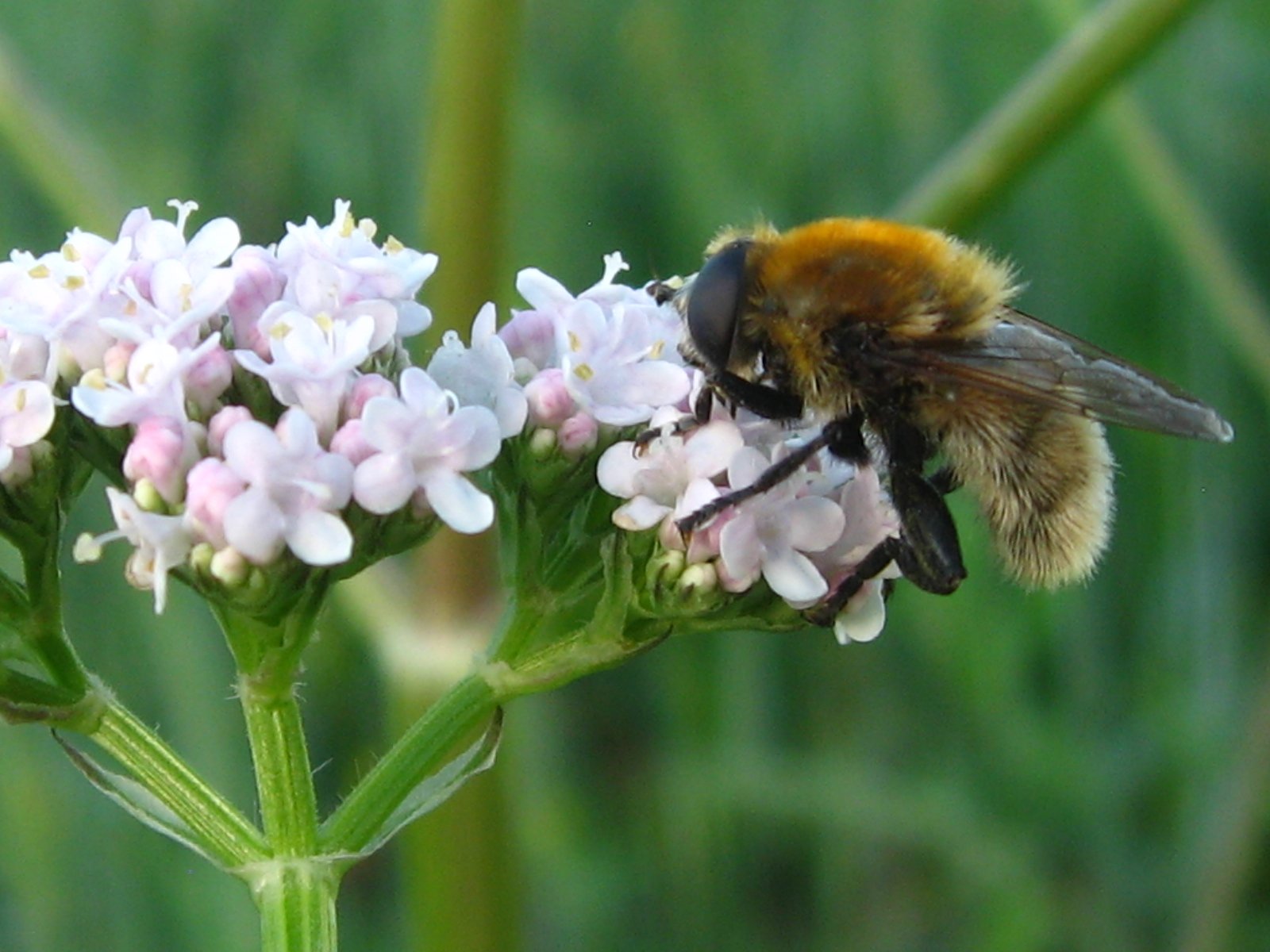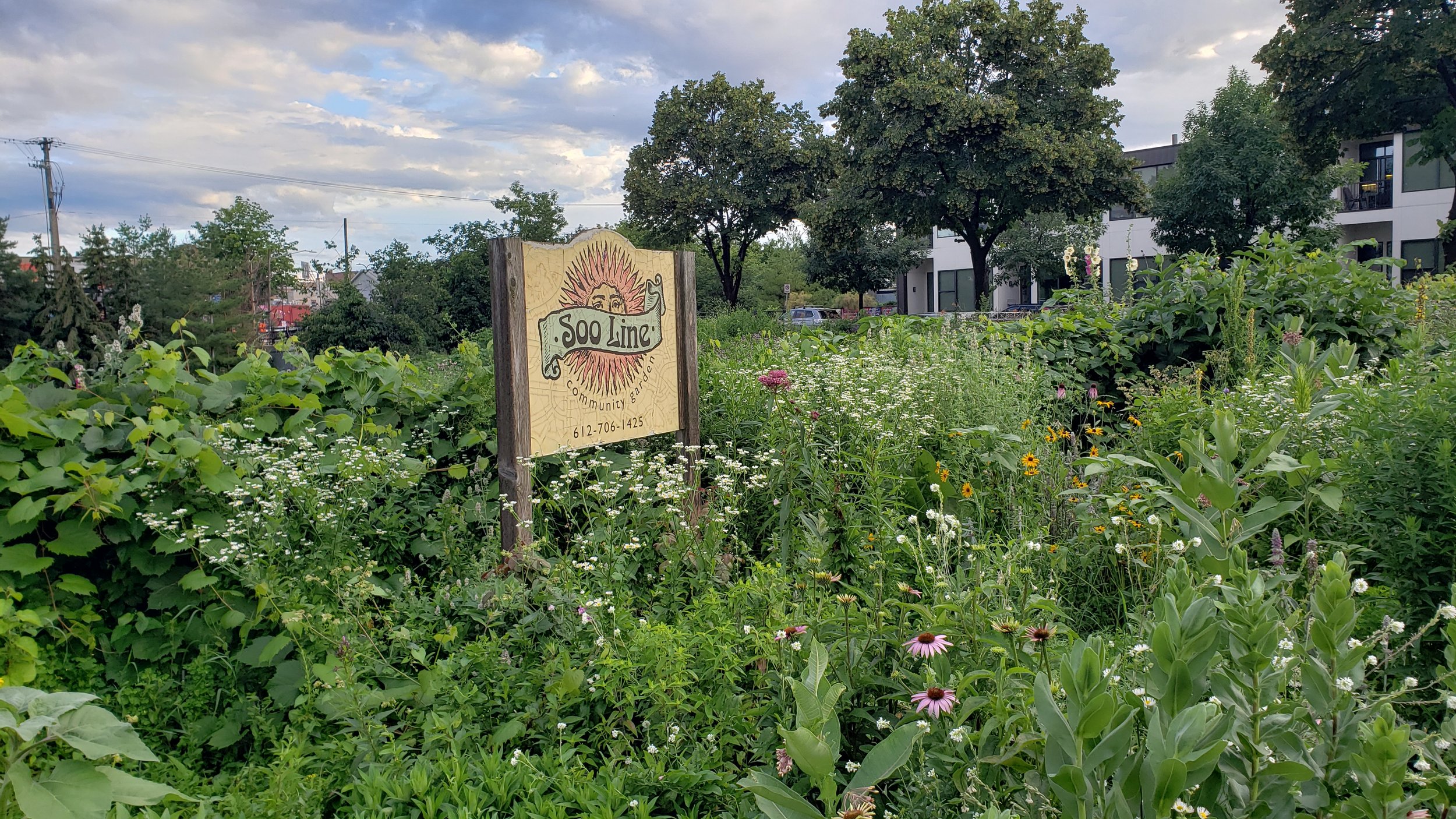
Stop the
Destruction.
Update: the community won!
In March 2024, after years of community advocacy, the Minneapolis Park and Recreation Board unanimously voted down the Hennepin County plan to build a paved bikeway through the garden. This victory for the community was possible because of thousands of supporters and a coalition of schools, bicycling, environmental, faith-based, gardening and pollinator groups.
Unfortunately, in the leadup to that vote, the County did soil testing that found contaminants in isolated areas. Due to changes in Minnesota Pollution Control Agency (MPCA) guidelines, the community was informed that the soil must be remediated.
With a temporary plan completed in 2025, the garden has been reborn with raised beds avoiding the contaminated soil. In late 2025, the Park Board also unanimously approved a new design for the garden.
(In 2001, the U.S. Environmental Protection Agency did a complete brownfield assessment at Soo Line. It found diesel fuel residues at 3-4 feet of depth due to former industrial use, but a topsoil relatively free of contaminants; the MPCA later determined that the site was safe for gardening in the “near-surface” soil, and that disruption of underlying soil had to be avoided. Since then, MPCA guidelines have changed.)
Background: Soo Line Community Garden faced its biggest threat in years
In 2021, years after the neighborhood successfully defeated Hennepin County’s plans to sell the garden to developers, the County proposed building a 12-foot bikeway (8 feet paved & 4 feet of un-plantable turf grass buffer) through the heart of Soo Line Garden. The project, cutting through the garden from both sides and through the middle, would have unearthed contaminated soil, destroyed valuable greenspace, eliminated pollinator habitats, eliminated all central gathering spaces, removed over 25% of plots, created unsafe situations and forever changed this treasured urban garden and park.
The County falsely claimed only 5% of the garden would be impacted and that the trail was smaller than existing woodchipped paths.
Hennepin County, with the assistance of the Minnesota Department of Transportation and Federal Highway Authority, also attempted to strip the garden of federal parkland protections.
Hennepin County owns empty land across from the garden but refused to consider using its own property. The community resisted for years and won in 2024.
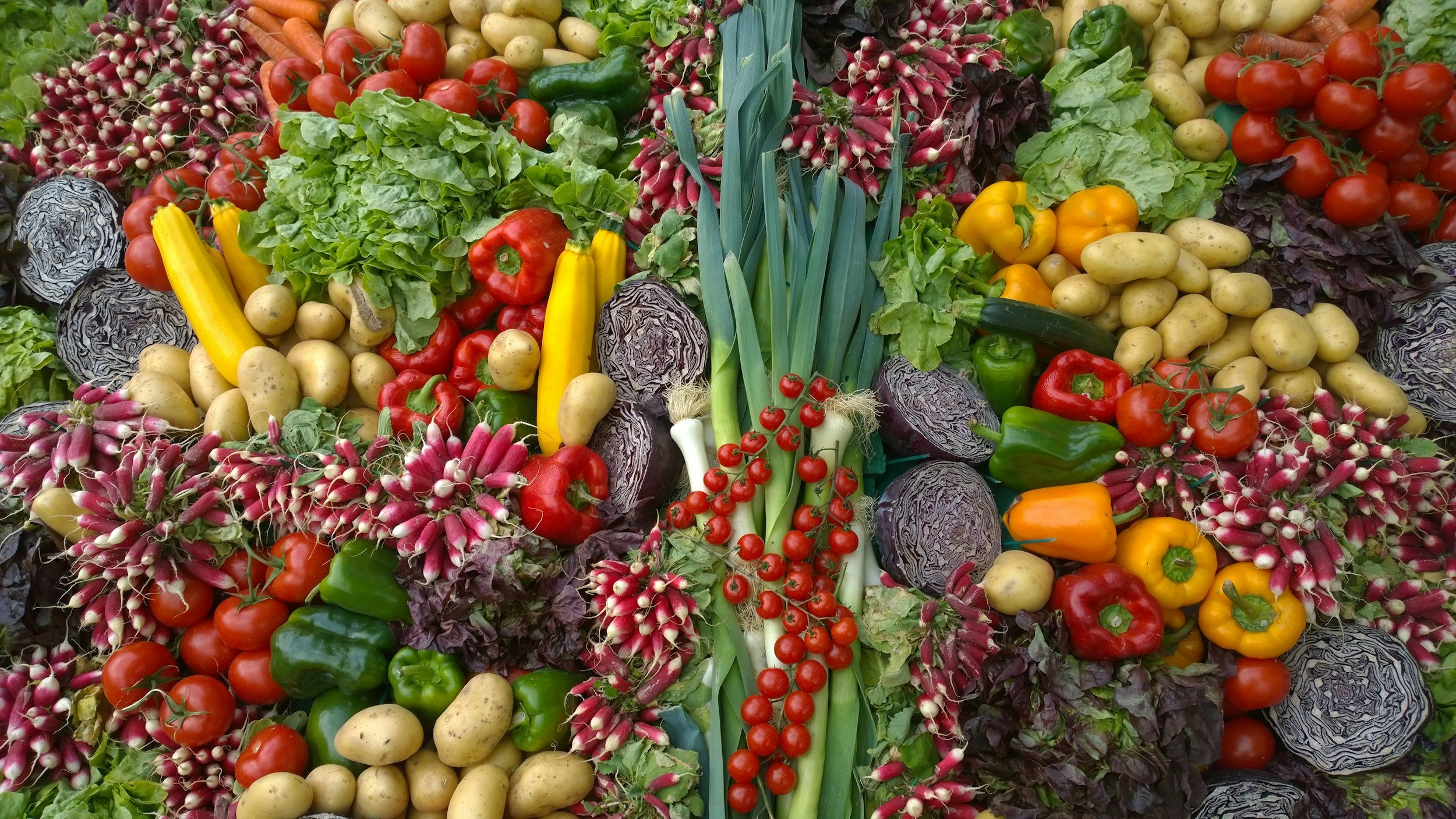
Soo Line Garden is supported by many organizations
The organizations below signed on against Hennepin County’s paved bikeway through the garden. We also gathered over 1,700 signatures asking to save the garden.
Midtown Greenway Coalition
Bicycle Alliance of Minnesota (BikeMN)
Sierra Club Northstar Chapter
LynLake Business Association
Lyndale UCC
Metro Blooms
Land Stewardship Project
East Phillips Improvement Coalition
East Phillips Community Garden
Compassionate Action for Animals
Twin Cities Community Agricultural Land Trust
West Bank Community Garden
West Maka Ska Neighborhood Council
Midwest Food Connection
Pollinator Friendly Alliance
Hope Community
Alliance for Sustainability
Vote Climate
Minneapolis Green Tigers
Naima Dhore - organic farmer
Interested in supporting us? We have a sign-on letter and can recommend other ways organizations can support us. Reach out at soolinecommunitygarden@gmail.com
Why it’s important to keep the garden in its natural state.
Climate resilience
Soo Line is important for climate resilience and stormwater management. Bikers, joggers, and walkers on the Greenway notice the temperature cool as they pass by the garden. As we face rising temperatures and unpredictable precipitation, Soo Line provides green space and permeable soil and deep-rooted perennials and trees for flood control.
Garden plots
Plots are in high demand every year. We predicted the project would remove over 25% of garden plots, plus native plantings, and gathering areas; that's a conservative estimate. We have 10 children's plots and a food shelf plot, all of which were under threat with the construction of the path.
Not suited for fast traffic
Soo Line Community Garden is not simply a connection to the Midtown Greenway. Gardeners cross the path constantly, carrying hoses, plants, tools, and mulch. Gardeners and children gather in the path for activities and events. It’s not an appropriate place for fast-moving bikes, e-bikes, and scooters.
Community space
In a neighborhood that's covered in pavement, green space is precious to the community. The proposed bikeway removed all the central gathering areas. People treasure the garden because it is a peaceful place to gather and create friendship. It's a place that supports mental and spiritual health, not merely an access route to the Greenway.
Pollinator habitat
The garden is a pollinator-friendly oasis, with decades-old pollinator plantings that provide habitat for insects, butterflies, and wildlife. Any reconstruction of this land will kill thousands of pollinators. 80% of native bees nest underground, including the queen bumblebee, as she nests underground all winter long.
Access to nature for kids
Whittier Elementary students are in the garden regularly as part of a youth summer program and tend garden plots and attend workshops in the spring and fall, in addition to playing in the garden during and after school. We want to protect nature access, free of fast-moving traffic, for children. The County’s own advisory engineers called the plan dangerous and “potentially catastrophic” in terms of safety.
Hear from gardeners and supporters.
Gary
Soo Line Gardener
"The garden is not a vacant lot to be paved over for pedestrian and bicycle traffic. It is a vibrant hub...not to mention a critical habitat for insects and birds – including the fox, raptors, and endangered rusty-backed bumble bees that feed and nest there."
Morgan Luzier: Chair, LynLake Business Association
"Due diligence should have included interaction with the gardeners and a robust discovery process."
Larry Ludeman
Whittier Business Owner
"I've lived in this area since 1978. I have observed a community develop at the garden, similar to a town square in older towns. It became a quiet and tranquil area to talk with neighbors...It has become a greatly needed green hub of human activity in an otherwise frequently cold, concrete jungle."
The community has shared its thoughts in the news:
Minneapolis Park Board votes down ADA bikeway through Soo Line Garden
The Star Tribune - March 21, 2024Readers Write: TikTok, environment, East Phillips, Soo Line Community Garden
The Star Tribune - March 17, 2024Readers Write: Soo Line Community Garden, IVF, immigration
The Star Tribune - March 12, 2024Park Board to decide fate of Soo Line Garden bike ramp
The Star Tribune - March 10, 2024Gardeners write in about proposed path through garden space
Southwest Voices - December 13, 2023Soo Line Community Garden fights for its right to gaaaar-den
Southwest Voices - December 12, 2023Soo Line Garden doesn’t need a paved path
Southwest Voices - May 1, 2022VIEW: Protecting a Garden Oasis From Development
Minnesota Women’s Press - January 11, 2022Hennepin County proposes paved trail through Soo Line Community Garden for Midtown Greenway access
The Star Tribune - December 30, 2021Stop the Destruction MoveOn petition
MoveOn.org

